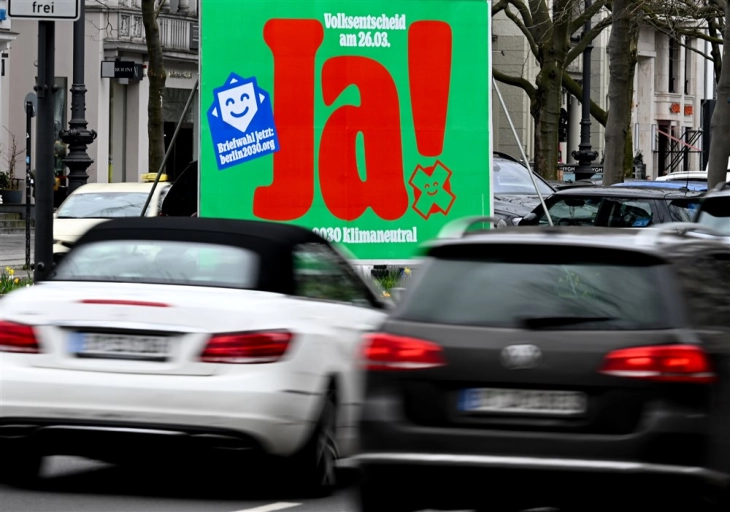Germany and EU Commission reach deal on combustion engine phase-out
- A deal between the German government and the European Commission on Saturday appears to have resolved a row over a EU ban on the manufacture of new cars with internal combustion engines.
- Post By Nevenka Nikolik
- 14:22, 25 March, 2023

Brussels/Berlin, 25 March 2023 (dpa/MIA) - A deal between the German government and the European Commission on Saturday appears to have resolved a row over a EU ban on the manufacture of new cars with internal combustion engines.
The dispute between Berlin and Brussels had centred on whether manufacturers would still be able to make cars that use so-called e-fuels after 2035 - a step that Berlin supported, but wasn't part of original commission plans.
"We have found an agreement with Germany on the future use of efuels in cars," EU Commission Vice President Frans Timmermans wrote on Twitter.
"We will work now on getting the CO2-standards for cars regulation [sic] adopted as soon as possible, and the Commission will follow-up swiftly with the necessary legal steps," he wrote.
German Transport Minister Volker Wissing, who had pushed most strongly for the change, wrote that "vehicles with internal combustion engines can still be newly registered after 2035 if they fill up exclusively with CO2-neutral fuels.
"Europe remains technology-neutral," he wrote.
The breakthrough came on Friday evening, Wissing said. This followed numerous exchanges over the deal in the past week, including at an EU summit on Thursday and Friday.
Speaking on Friday afternoon, Wissing said that "the last legal questions still have to be clarified."
An EU agreement from October to only allow emissions-free cars to be manufactured after 2035 was put on hold after Germany raised last-minute objections and pressed for additional demands.
Wissing's free-market liberal Free Democratic Party (FDP), a junior partner in Germany's ruling coalition, has led efforts to revise the deal, but many EU leaders demanded that Berlin stick to the agreement as planned.
It was a high-stakes disagreement: Germany has a major car manufacturing industry that would have to implement the EU law in their product lines; for the EU, the combustion engine rules are seen as a central component of the bloc's plans to become climate-neutral.
Critics of the e-fuels proposal argue that the fuels are scarce and require a relatively large amount of energy to produce compared to electric autos. Alternative fuels would be needed more urgently in aviation and shipping, they say.
Wissing said on Saturday that he expected the new rules to be finalized by autumn this year.







